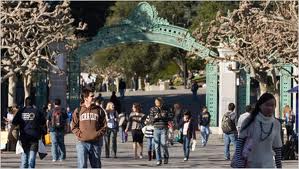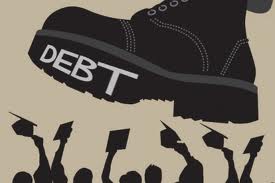This is depressing, but not exactly shocking. New research suggests that many men get depressed when women in their lives thrive.
As the story in today’s WebMD reports: “Men tend to feel worse about themselves when their wives or girlfriends succeed, with their self-esteem sagging rather than basking in the glory of their partners’ accomplishments. That’s the conclusion of a study published online recently in the Journal of Personality and Social Psychology.
“A series of social experiments revealed that men’s subconscious self-esteem bruises easily when their partner succeeds in a task, even if they’re not competing against each other in that task, said study lead author Kate Ratliff.
 “It makes sense that a man might feel threatened if his girlfriend outperforms him in something they’re doing together, such as trying to lose weight,” said Ratliff, an assistant professor of psychology at the University of Florida.
“It makes sense that a man might feel threatened if his girlfriend outperforms him in something they’re doing together, such as trying to lose weight,” said Ratliff, an assistant professor of psychology at the University of Florida.
“But this research found evidence that men automatically interpret a partner’s success as their own failure, even when they’re not in direct competition,” she added in a news release from the American Psychological Association. At the same time, a male partner’s success had no effect at all on a woman’s self-esteem, the researchers found.
“We sort of expected that women would internalize the success of their partner and actually feel better if their partner succeeded, but we found that nothing was going on,” Ratliff said. “It could be that women are used to the idea that men are expected to be successful, so when they are it’s no big deal.” The study involved 896 people in five experiments conducted in the United States and the Netherlands. The first experiment included 32 couples at the University of Virginia who took a problem-solving test. Then they were told that their partner scored either in the top or bottom 12 percent of all university students. Participants did not receive information about their own performance.
“The news of their partners’ success or failure did not affect how participants said they consciously felt about themselves, which the study authors referred to as “explicit self-esteem.” But, tests gauging “implicit self-esteem” — a person’s unconscious and unspoken sense of self — found that men who believed that their partner had scored in the top 12 percent had significantly lower self-esteem than men who believed their partner had scored in the bottom 12 percent.
“I want to be clear — this really isn’t the case that men are saying, ‘I’m so upset my partner did well.’ The men aren’t acting different toward their partners. It’s not like the men are being jerks,” Ratliff said. “It’s just hurting their sense of self to be in a relationship with someone who has experienced a success.”
More at: http://men.webmd.com/news/20130830/in-showdowns-between-sexes-male-ego-bruises-easily?src=RSS_PUBLIC

















